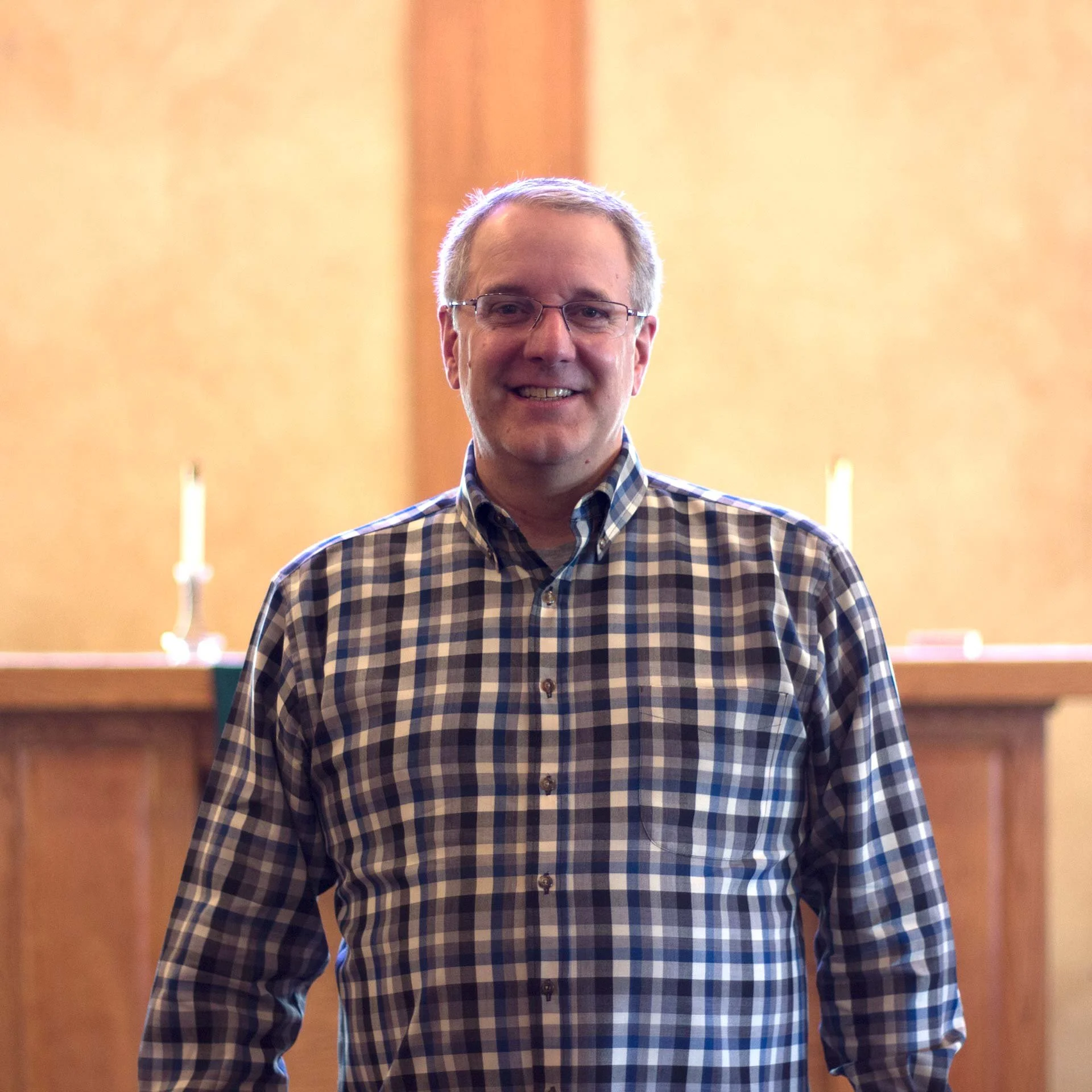Welcome to Bethel!
We are a Christ-centered, Bible based, multi-generational church that tangibly loves our community, our world, and each other.
With a heart for the disadvantaged, we reach out to our local community and ministries throughout the world. Feed My Starving Children, Fostering Hope, Habitat for Humanity, and Mercy’s Gate are just a few of our partners.
In addition, a number of Bethel members run the internal programs that serve children, young adults, adults, and seniors. One of those programs is Stephen Ministry, a ministry of lay people who walk alongside others who are going through a tough time.
We also share the sanctuary with a Ukrainian church and recently started hosting Aero Ridge Christian Academy, a K-12 hybrid school.
Please join us however you’re most comfortable and be sure to pick up the gift we have for you!
Tasha Widger
Administrative Support
Meet the team
Pastor John Witkop
Senior Pastor
Pastor Dan Lahman
Associate Pastor
Bethany Witkop
Youth Ministry
We look forward to meeting you!
Some people wonder about the first church of the Reformation…
We have someone who was there at the beginning
Hey Martin, when were you born and what was your childhood like?
Hello!
I was born to Hans and Margarethe (Ziegler) Luther on November 10, 1483, in Eisleben in the Holy Roman Empire – in what is now eastern Germany. I was baptized the next morning on the feast day of St. Martin of Tours. My family moved to Mansfeld in 1484, where my father operated copper mines. He was determined to see me, as the eldest son, become a lawyer. He sent me to schools in Mansfeld and in 1497, Magdeburg, where I attended a school operated by a lay group called the Brethren of the Common Life. In 1498, I attended school in Eisenach.
At the age of seventeen in 1501 I entered the University of Erfurt. I received my Bachelor’s degree after just one year in 1502. Three years later, in 1505, I received a Master’s degree. In compliance with my father’s wishes, I enrolled in the law school of that university.
The course of my life changed during a thunderstorm in the summer of that same year. A lightning bolt struck near me as I was returning to school. Terrified, I cried out, “Help! Saint Anna, I will become a monk!” I soon left law school, sold my books, and entered the Augustinian monastery in Erfurt on July 17, 1505. My father was not pleased with this decision.
Your Brother in Christ
Martin
Mr. Luther, what should I tell my friends about taking communion at Bethel?
At the table of our Lord Jesus Christ, God nourishes faith, forgives sin, and calls us to be witnesses to the Gospel.
Admission to the Sacrament is by invitation of the Lord, presented through the Church to those who are baptized. In this regard Christian baptism is an expected pre-condition. But God’s grace is always present. When an unbaptized person comes to the table seeking Christ’s presence and is inadvertently communed, neither that person nor the ministers of Communion need be ashamed. Rather, Christ’s gift of love and mercy to all is praised. That person is invited to learn the faith of the Church, be baptized, and thereafter faithfully receive Holy Communion.
In addition to baptism, preparation is also an expected aspect. Preparation takes two forms. First, the person should seek out instruction that emphasizes the sacrament as a gift, given to the faithful by and for participation in the community. Such faith is not simply knowledge or intellectual understanding but trust in God’s promises given in the Lord’s Supper (“for you” and “for the forgiveness of sin”) for the support of the baptized. Second, people should examine themselves at the time of partaking. Opportunities for corporate and individual confession and absolution, including the use of the Brief Order for Confession and Forgiveness, are especially appropriate. Helpful forms of personal preparation may include self-examination, prayer, fasting, meditation, and reconciliation with others through the exchange of peace.
But let me speak more directly to your present LCMC context. Believing in the real presence of Christ, the LCMC practices what is referred to as “eucharistic hospitality.” All baptized persons are welcomed to Communion when they are visiting in the congregations of the LCMC. This is usually referred to as “open communion.”
Historically, when it came to communion we early reformers had to agree to disagree. In 1529, I traveled to Marburg, Germany to meet with representatives from the Swiss reformation movement. My meeting with Ulrich Zwingli, the leader of the fledgling reformation in Zurich, allowed us to reach agreement on almost all theological issues. The only major exception was in the area of communion.
While Lutherans affirmed the real presence of God ‘In, With, and Under’ the earthly elements of communion, other reformed churches saw communion as more a symbolic presence, not a literal (albeit mysterious) presence. This distinction continues even into your modern day.
Your Brother in Christ,
Martin Luther






